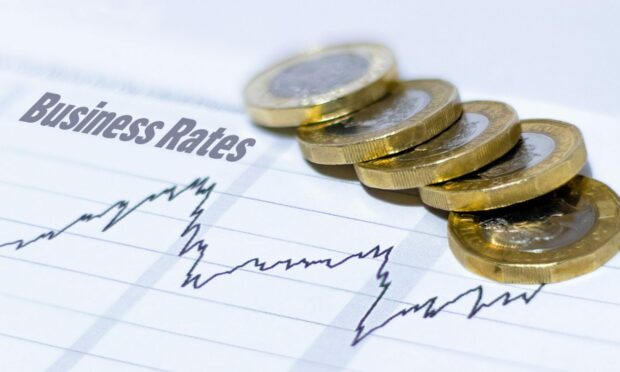Business eyes will be on the Scottish budget tomorrow, with non-domestic rates front of mind for many.
What are non-domestic (business) rates and who pays?
Business rates are charged on most non-domestic properties.
These include shops, offices, pubs, warehouses, factories, and holiday rental homes or guest houses.
You’ll probably have to pay business rates if you use a building or part of a building for non-domestic purposes.
They’re also charged on non-domestic properties held by the public and third sectors, like schools, public toilets, ATM sites and billboards.
Who does not need to pay?
Some types of premises are exempt from business rates. These include:
- Agricultural land and buildings
- Fish farms
- Public parks
- Rural premises with ATMs
- Oil and gas pipelines
- Overseas armed forces premises
What are they for?
The rates are pooled by the Scottish Government and redistributed to local authorities.
They are a tax on non-domestic properties to help pay for local council services, such as education, social care and waste management.
Business rates do not include charges such as rent and business leases, water charges or other costs.
How are business rates calculated (step one)?
Councils use the “rateable value” of a property to calculate business rates.
These are worked out by assessors in a process known as a valuation. Each council area in Scotland has its own assessor.
Assessors use different methods to calculate rateable values. They will usually ask property owners, tenants or occupiers for information to make sure their calculations are as accurate as possible.
For most properties, rateable value is based on an estimate of the rental value.
Assessors take rental values from the same point in time, known as the “tone date”.
For current valuations, this was April 1 2015. The tone date for the next revaluation is April 1 2022.
How are business rates calculated (step two)?
The final bill is calculated by multiplying the rateable value by a monetary sum called the rates poundage, which is currently 49.8p, and then subtracting any discounts you are entitled to, together with other adjustments or payments you’ve already made.
Properties with a higher rateable value are charged at higher poundage rate.
An “intermediate property rate”, currently 51.1p applies for properties with rateable values from £51,001 to £95,000.
A “higher property rate”, currently 52.4p applies for properties with rateable values in excess of £95,000.
Small premises valued at less than £15,000 are currently exempt from business rates, while there is a reduction for those up to £18,000.
Is there somewhere I can check the rateable value of my business property?
You can find the rateable value of a property on the Scottish Assessors Association website.
You’ll also find a breakdown of how rateable values are calculated for most properties.
How are business rates collected?
You pay business rates to your local council. When you start a new business or move into new premises, you should tell your local council and it will send you a rates bill.
Your council will normally send you a business rates bill in February or March every year. This is for the period April 1 to March 31 the next year.
You can pay business rates as a lump sum or by instalments. You can pay them by Direct Debit, online, by debit or credit card, or by bank transfer or standing order.
How much do councils earn from business rates?
Business rates currently rake in nearly £2.8 billion a year for Scottish councils.
In Aberdeen they make up a lion’s share of the city council’s annual budget
Firms in the Granite City are paying nearly £268.6 million in rates this year, more than businesses in Edinburgh.
Inverness businesses are contributing to £141.6m going into the coffers of Highland Council.
Business rates in Elgin and elsewhere in Moray are worth £54.6m to the local council in the 2022-23 financial year.
Other council areas and their total business rate allocations include:
- Aberdeenshire £138.8m
- Argyll & Bute £33.2m
- Western Isles £8.1m
- Orkney £13m
- Shetland £35.3m
Why are north-east firms so worried about business rates?
North-east firms have long complained they are unfairly treated by a business rates system which left them shouldering much bigger bills, based on rental values from before the impact of the last oil and gas downturn started to be felt across the region.
There have been widespread calls, including from Aberdeen and Grampian Chamber of Commerce, for a freeze in the poundage amid fears it may go up in tomorrow’s Scottish budget.

